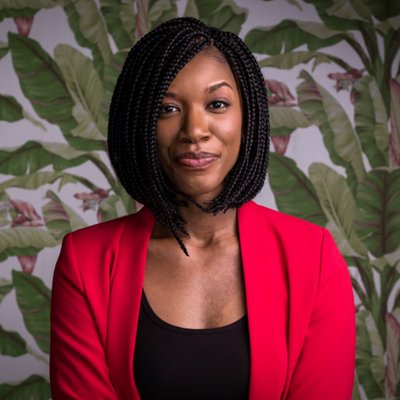Proposals to reform police activity have grown exponentially in the wake of protests following the death of George Floyd. Many proposals would elevate social work and related community services. In order to be part of the solution to police reform, social workers must recognize and remedy the ways that we are guilty of upholding racial disparities.

Melissa Murphy, social worker and PhD Candidate at Florida State University.
Social workers do represent a viable alternative for addressing many community-based problems that are increasingly tasked to police. But if the end goal is to serve the community more equitably, social workers must also engage in and commit to self-reflection. A refusal to interrogate personal bias is no longer acceptable.
An analysis published in the New York Times demonstrated that police officers spend little time managing or responding to violent crime calls. Instead, police officers spend most of their time responding to non-violent crisis calls that resemble common problems also addressed by social workers (e.g., domestic violence/mental health crises).
Moreover, in some jurisdictions, social workers already collaborate with police officers as part of a “co-response model,” most commonly used in crisis calls where mental health is a concern. A 2018 systematic review evaluating the effectiveness of the co-response model demonstrated that social workers reduce the use of police force and detention. Social workers are essential to the conversation, whether the solution is shifting to co-response crisis teams or rerouting police funds to the community and social services.
But, just as the system of policing is imperfect, fallible and subject to our scrutiny, so is social work. In a recent Wall Street Journal op-ed, Naomi Schaefer Riley challenges the assumption that social workers represent the de facto solution to police reform. First, the author argues that some social workers, like police officers, also enforce social order. Child welfare workers are on the frontlines of responding to reports of child abuse and neglect and are tasked with forming arduous judgments about child safety and risk. These professional judgments then culminate into decisions about whether an at-risk child should be removed from the home.
Further, Riley reminds us that social workers lack the formal training that police officers have in both self-defense strategies and investigations. Debates aside about whether self-defense strategies are preferable to de-escalation techniques, it is tough to refute concerns about social workers’ heightened vulnerability in dangerous situations. But the author’s cautionary reminder that social workers are similarly susceptible to implicit racial biases is informative and demands deeper analysis.

Jessica Pryce, director of the Florida Institute for Child Welfare.
The source of bias in professional judgments and decision-making is multi-faceted. Still, implicit racial biases occur in various clinical decisions and judgment. One of the most robust findings from this literature concerns evidence that mental health clinicians disproportionately misdiagnose Black clients with a psychotic disorder compared to white clients. This racial disparity holds true even when all factors associated with the case are equal, and when the symptoms do not justify a psychotic disorder diagnosis.
While these findings extend beyond social workers and represent mental health providers’ biases, social workers comprise a large portion of this workforce. Research evaluating the judgments of child welfare workers affirms the notion that critical decisions, such as whether or not to substantiate allegations or remove a child from home, are influenced by implicit racial biases.
Delivered in a moment when social workers have been cast as part of the solution to police brutality, Riley’s critique of the social work profession is uncomfortable. But if social workers respond to the call of police reform, our profession has to face our own complicity in racial disparities. There is a promising role for social workers around police reform, but let us not forget that social workers are fallible too and should not be viewed as immune to implicit biases in their professional judgments. It is the responsibility of social work educators, policy-makers have to emphasize de-biasing techniques, problem-based learning approaches, and critical thinking skills training.
Now, more than ever, social workers need to model an openness toward our imperfections and demonstrate a desire to learn from blights on our professional record. Rejecting the hero-narrative during this critical time enables social workers to be introspective and part of the solution to inequity. Social workers must acknowledge the paradox that we are both professionals in the fight for social justice and actors in a broken system that reinforces racial and economic inequity.
Melissa Murphy is a social worker and a doctoral candidate at Florida State University. Jessica Pryce is the director of the Florida Institute for Child Welfare.





